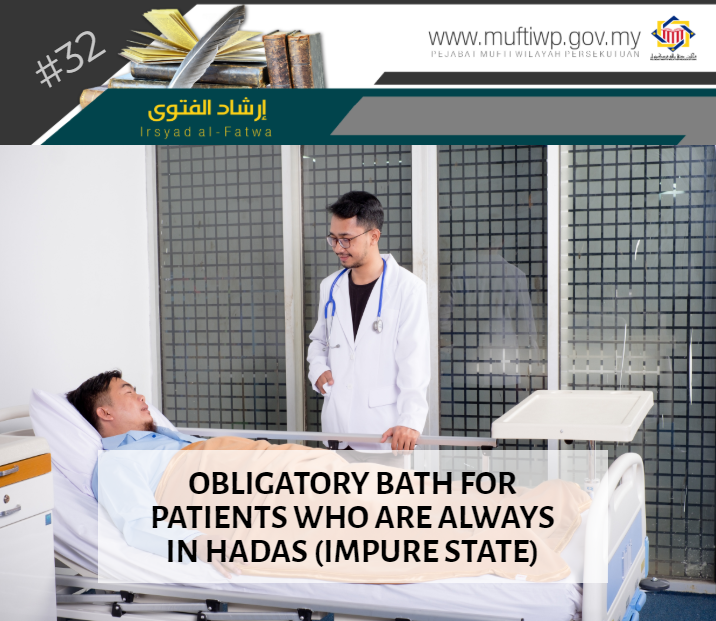Question:
How should a patient who is always in hadas (impure state) perform the obligatory bath?
Answer:
Alhamdulillah, praise and thanks to Allah for the countless blessings He has blessed us all with. Blessings and salutations to the Prophet Muhammad PBUH, his wives, his family, companions and all those that follow his teachings to the day of judgement.
A patient who is always in hadas (impure state) are usually those who have to wear the colostomy or continuous bladder drainage bag.
A colostomy bag is a type of rubber attached to a patient who is unable to defecate normally. While continuous bladder drainage bag is a type of rubber device attached to a patient who has lost the ability to urinate because of obstruction of the urinary tract.
For these patients, it is not harmful to them to use water. Furthermore, the bags are replaceable when they are full. In this case, patients are included as patients who are able to use water to take a bath the same way as healthy people.
For the patient who intends to take the obligatory bath, he should:
- Remove the bag that contains the urine/faeces. For a patient who is wearing colostomy bag, he should clean the place the faeces are extracted through the stomach. Then, the bag is replaced with a new bag or the old bag is reused after it is cleaned.
- Perform the ablution normally as it is sunnah before the obligatory bath.
- Take the bath by washing his whole body.
By performing the obligatory bath, only then he can fulfil the valid conditions for prayer and perform his prayers. If when he is performing prayer, faeces are excreted into the bag, then it is forgiven for he is in a desperate or exigent situation. The prayer of the patient is valid and he does not have to replace his prayers after he is cured.
Even though both types of patients who have to wear these devices is able to take their baths and it is not harmful for them, the frequency of going to the bathroom to perform their prayers will be a great burden to them. The next question that arises is, is it permissible to assemble two prayers at once?
It is permissible to assemble two prayers for patients in this situation. The permissibility is concluded by Imam Ahmad, al-Qadi Husain, al-Khattabi and al-Mutawalli al-Nawawi in accordance with strong evidences for situations such as these.
There are two approaches for patients to assemble their prayer:
- Assembling the prayers in the first or second prayer time (jama’ takdim and ta’khir).
- Assembling the prayer in the form of suri (representation) which is by performing the first prayer at the end of its time and the second prayer at the beginning of its time.
Prayers that are permissible to perform jamak are Zuhur with Asar, and Maghrib with Isyak. Other than these prayers are impermissible to be performed in jamak. The prayers are impermissible to be performed in qasar, consequently, we are only discussing jamak for prayers in these desperate situations.


